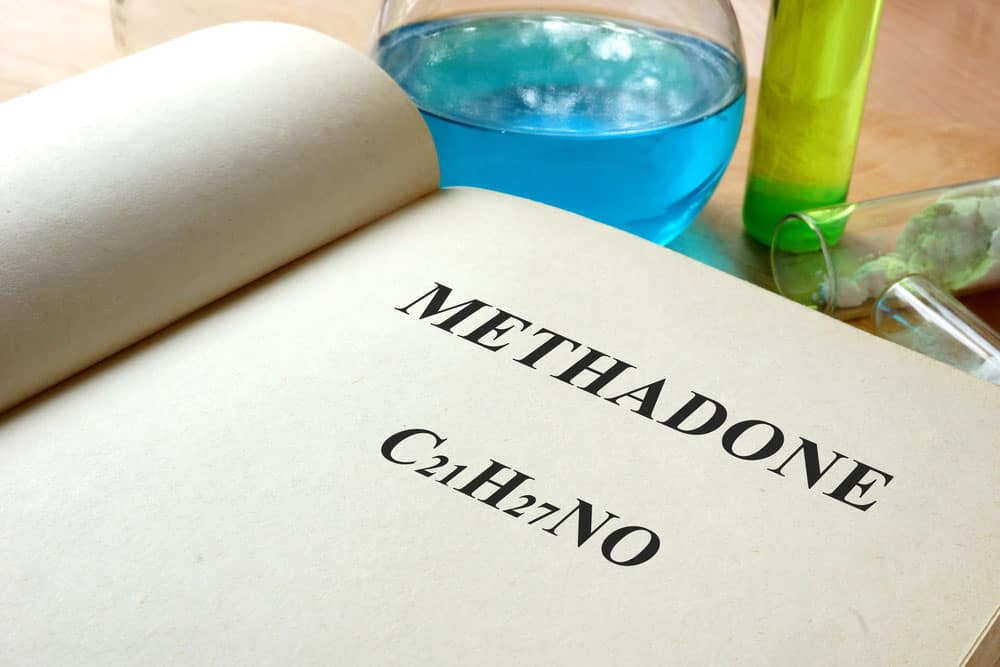The Methadone Withdrawal and Detox Process
For years, people who were suffering from heroin abuse were treated using a medication called methadone. This substance has also been used to help treat people who were addicted to narcotic medications. But, it is also prescribed to people who are suffering from various bodily pains.
Unfortunately, however, the use of methadone has led to addiction in the lives of many individuals. In some cases, people who use this substance to treat pain or addiction have actually become dependent on it. This, of course, is a cause for alarm in regards to methadone use.
Here at Northbound Treatment Services, we’ve had more than 25 years of experience in providing treatment programs for those who are suffering from substance abuse and addiction. We understand how difficult it can be to overcome methadone addiction. This is why we offer services to those who are seeking help and support as they work to end methadone use in their lives. If you or a loved one is looking for methadone treatment, our medical professionals can help.
Methadone: How Does It Work?
Methadone is classified as a synthetic opioid. When a person uses methadone, the drug acts on the same opioid receptors in the brain that morphine and heroin affect. This substance works by changing the brain and nervous system react to pain.
One of the reasons this drug is used in order to help people who are suffering from opiate addiction is because methadone blocks the “feel good” sensation of drugs like morphine and heroin. So, if individuals relapse and use these drugs during their methadone detox process, it’s likely that they won’t feel the euphoric effects of that substance.
How Does Methadone Dependence Develop?
It’s common to assume that people can’t become dependent on or addicted to substances that are meant to help them. Many individuals feel that it’s less likely to develop an addiction to substances like methadone than it is to become addicted to illicit substances like heroin or cocaine.
But, the truth of the matter is that many people who have used methadone in order to treat pain and other issues in their lives have actually become physically dependent on this medication. But how does that happen?
Methadone is an opiate painkiller and it’s a long-acting drug. This means that the effects of this drug tend to linger and the drug can actually build up in a user’s body. The pain-relieving effects of methadone can be addictive, especially for those who suffer from recurring or intense pain.
However, this substance is not exactly meant to treat chronic pain because the pain-killing effects usually only last for about 8 hours. So, when an individual begins to experience pain as the effects of methadone wear off, he or she may use more of the medication in order to stop feeling pain. But, since the drug builds up in the body, individuals who use this substance more often than recommended could be at risk for overdose.
Sometimes, people mix methadone with other substances, including alcohol, benzodiazepines (benzos), and other depressants. Not only is this unsafe, but it can actually lead to fatal consequences.
Methadone Withdrawal and Detox Process
The methadone detox process is considered one of the most difficult of any of the opiate drugs. Addiction to methadone is similar to that of heroin. Some patients have stated that it is worse. The opioid withdrawal symptoms resulting from physical dependence on a drug are usually the opposite of the side effects produced by the drug. Because the methadone withdrawal timeline is longer and more difficult than other substances, a relapse can be quite common for individuals who try to detox on their own. Methadone side effects may include:
- Seizures
- Abnormal heartbeat
- Difficulty breathing
- Nausea and vomiting
- Vision problems
- Hives or rashes
People who use methadone regularly and frequently may begin to grow physically dependent on it. After using a substance like methadone for a while, a person’s body may begin to get used to functioning and operating with that substance. As a result, the individual will experience quite a bit of discomfort if he or she misses a dose or stops using the drug. This is known as withdrawal. Some of the most common methadone withdrawal symptoms include:
- Fever
- Chills
- Nausea
- Vomiting
- Diarrhea
- Tremors
- Pain in joints or legs
- Elevated pain sensitivity
- Elevated blood pressure
- Tachycardia (rapid heart beat)
Precautions to Consider Regarding Methadone Use
Methadone intensifies the effects of central nervous system depressants such as alcohol, cold medications, antihistamines, barbiturates, muscle relaxants, seizure medications, dental anesthetics as well as other over the counter or prescription pain medications. These medications should be avoided while taking methadone.
This drug may also cause drowsiness, dizziness, and lightheadedness. Driving or operating machinery should be avoided while taking methadone. An overdose of methadone may result in unconsciousness, coma, or death.
Detoxing from Methadone Use At Northbound
Here at Northbound Treatment Services, we understand that you may have some concerns when it comes to medication-assisted detox programs. Many facilities use substances like methadone which might lead to yet another addiction problem. This leaves some individuals believing that medical detox programs simply switch one drug for another, one addiction for another. At Northbound, our goal is to make sure each of our clients completes our treatment program addiction-free!
We are dedicated to making sure every individual safely ends substance abuse in their lives. Our team of clinical professionals understands the importance of monitoring our patients throughout the detox and recovery processes. So, rest assured that we will be with you every step of the way as you work to safely and comfortably end addiction in your life.
Medications such as Suboxone and Subutex may be used throughout your medical detox program. But, here at Northbound Treatment Services, we are committed to helping you become and remain free from addiction. So, know that we will provide supervision and guidance to ensure that substance abuse doesn’t become an issue throughout your detox process.
Here at Northbound Treatment Services, we can help you or a loved one to overcome methadone dependence and addiction through our evidence-based treatment program. You don’t have to go through the mental and physical symptoms of withdrawal on your own. We understand that no two individuals are the same, so we offer customized and individualized treatment plans to meet each patient’s needs.
Our clients are treated by caring staff members in a comfortable environment to help ensure long-term recovery. Not only do we care for those who have drug addictions, but we also work to uncover and address the underlying causes of addiction, co-occurring mental illnesses, and any other challenges in our clients’ lives.
A variety of therapies and classes provide patients with coping and daily living skills to help them return to being productive members of society.
If you or someone you know could use some assistance in ending addiction, please contact us today to learn how we can help! Just call us at (855) 858-6803.
Source:
Author
-

President, CEO & Founder at Northbound Treatment Network
Paul Alexander is the CEO, President & Founder of Northbound Treatment Network in Newport Beach, California. He believes wholeheartedly in transformational leadership, organizational health and effective, fully integrated substance use disorder and mental health treatment. With over 27 years of experience in behavioral healthcare, Paul has extensive knowledge of “in vivo” treatment modalities, clinical development, operations, strategy, marketing and financial planning. He has been widely recognized for his development of collegiate-based residential treatment programs for students in recovery and authored a research study at The University of California confirming this modality’s effectiveness.
Paul’s comprehensive professional experience, willingness to innovate, and emphasis on organizational health are vital factors in Northbound’s continued success. Paul received his Certified Addiction Treatment Specialist training at Saddleback College in Mission Viejo, CA, and was awarded Outstanding Alumni Service Award in 2002. Paul holds a Bachelor of Arts degree in Criminology, Law and Society, Summa Cum Laude, from University of California, Irvine, and a Juris Doctorate degree from Loyola Law School of Los Angeles. Paul currently serves on The National Association of Addiction Treatment Providers (NAATP) board. In addition, he serves on The Family Recovery Foundation board and The CarePossible board in Orange County; both organizations are committed to raising funds for family recovery and treatment for former military personnel. Paul is in recovery himself and lives in Orange County with his wife Silvana and his two young sons, Noah and Dean.










